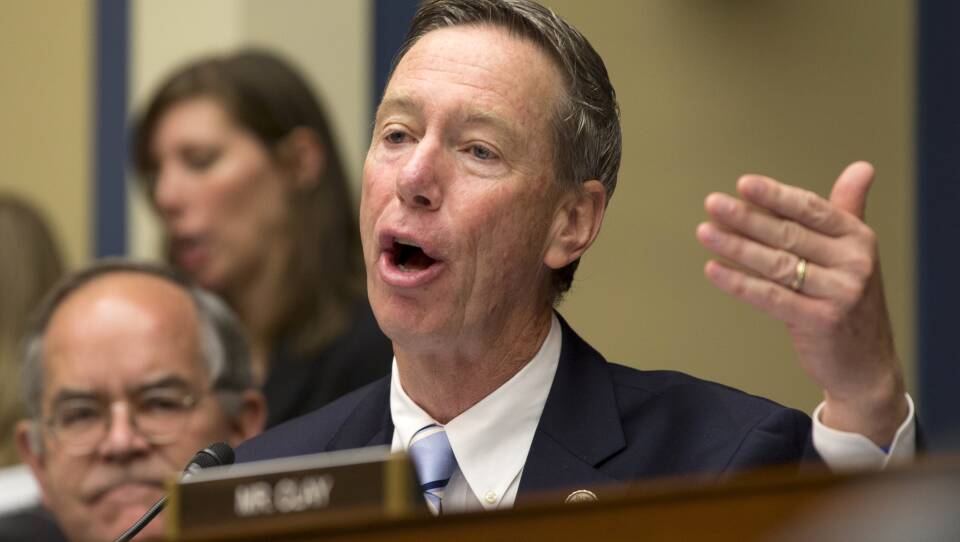Rep. Stephen Lynch called for an oversight hearing to examine the TSA’s “Quiet Skies” program, which has been tracking and surveilling passengers through undercover and controversial means for years.
“It’s been a clandestine program, at least up until now,” Lynch said during an interview with Boston Public Radio Tuesday. “We will ask the TSA and the Air Marshal president to basically describe what, exactly, they’re doing.”
The program, as reported in a Boston Globe expose, uses undercover federal air marshal teams to monitor the behavior of ordinary passengers: and collects data based on behavior like sleeping on the plane, chatting with other passengers and looking at people using a “cold penetrating stare.”
Lynch says the hearing will hopefully reveal more details about the program, like how formally organized it is, “whether it’s just observing behavior or whether there’s actually a list of people who have been identified as acting oddly or in a threatening way,” Lynch said.
Lynch, a ranking member on the House Subcommittee on National Security, told WGBH News he wasn’t aware of the program, which has allegedly already tracked thousands of unsuspecting Americans, according to the Boston Globe investigation.
This isn’t, however, the first he’s heard about conflicts between the Air Marshal’s Association and the TSA.
“There’s been some pushback from the Air Marshal’s Association about how TSA has been running that program, but not necessarily tracking the data and behaviors of people who haven’t been previously identified or put on a watchlist,” he said. “So that’s a new dimension to this, and that’s what we’ll be looking at in the hearing.”
According to Lynch, use of Air Marshal’s time and payroll has been a major conflict between the AMA and the TSA. “There are other problems with the Air Marshal program,” he said. “The Air Marshal Association is complaining that the TSA is just putting them on random flights, they call them “flights to nowhere” — flights where there is no risk, or extremely low risk that there will be any type of terrorist activity.”
According to Lynch, Air Marshals are booked on these flights “so they can keep their numbers up and satisfy Congress’ requirement that they have security in the air.”
According to a 2017 report from the U.S. Transportation Security Administration, the TSA’s Air Marshal program costs the government $800 million annually.
According to Lynch, this program operates at no cost to the airlines because airlines are able to write off the losses because of the seat being taken by an Air Marshal.
The Strengthening Aviation Act of 2017, which passed in the House, would require the TSA to utilize “risk-based” strategies instead, like evaluating which flights might be more worthy of an Air Marshal’s time.
“For instance, if we know someone’s on the watchlist and they’re allowed to get on a plane, there should be an air marshal on that plane with that individual,” Lynch said. “That’s not necessarily the case right now.”
To hear Rep. Lynch’s full interview, click on the audio player above.





